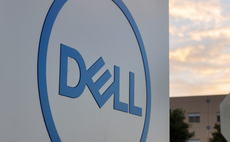Shortages caused by the recent, devastating floods in Thailand will have a long-term effect on the storage market, writes Alexandre Mesguich
The floods in Thailand have already had an impact on the supply of hard disk drives (HDD). Distributors were slow to react as resellers took immediate advantage of HDD shortages, with sell-through ...
To continue reading this article...
Join CRN
- Enjoy full access to channelweb.co.uk - the UK’s top news source for the IT channel
- Gain the latest insights through market analysis and interviews with channel leaders
- Stay on top of key trends with the Insider weekly newsletter curated by CRN’s editor
- Be the first to hear about our industry leading events and awards programmes
Already a CRN member?








